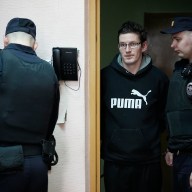According to the informal test found early in the pages of “Quiet: The Power of Introverts in a World That Can’t Stop Talking” I am an introvert: I’d rather talk to single good friend than several acquaintances; I wish all of my communication was in writing; I’m not driven by ideas of wealth and fame; and I don’t like small talk. Sometimes, I even prefer books to people.
This does not bode well for me. According to Susan Cain, author of “Quiet” we live in a time when introversion is “somewhere between a disappointment and a pathology.” Anyone who has been to a public school in the past twenty years (if not more) will probably agree. The ideal person in our culture is extroverted; comfortable in front of crowds, and gregarious. Any deviation from extroversion is a sickness, and we should make it our life’s project to eradicate these traits from ourselves.
But Cain offers a reprieve to all oppressed introverts: not only is it OK to be introverted, sometimes it’s even advantageous. Many of the most important cultural and technological advances in our culture have come from introverted people, from Newton’s theories to stories of E.M. Forster. Introverts are more careful; they have concentration necessary to develop expertise in a subject and they are more creative than extroverts.
Pure extroversion, on the other hand, is not necessarily an unmitigated good. The financial crisis is an example of what can happen when the risk taking extroverts take control. For years traders who took the biggest risks and who were more adept at selling themselves and their ideas prevailed until finally the worst fears of the cautious introverts came to be. Extroverted behavior can be dangerous and even at times downright dishonest.
Quiet is best understood as a reaction to our culture’s entrenched preferences for extroverts. It’s a book directed toward introverts; thus, many pages in Quiet are devoted to the merits of introversion and the evils of extroversion as if restoring balance to our culture. These discussions should not detract from Cain’s ultimate conclusion though: that both introverts and extroverts have a role to play in our society, and that we should not be ashamed of our natural inclinations, whether introverted or extroverted, but should play to our natural strengths and be confident in doing so.
Susan Cain, author of “Quiet: The Power of Introverts in a World That Can’t Stop Talking,” will be discussing her book at Greenlight Bookstore 686 Fulton St (at South Portland) Brooklyn, NY 11217. I’m expecting a Tony Robbins inspired, rock music fueled presentation like the one described in the book but we’ll see.
Other Events of Note:
February 17, 2012 “Derangement of the Senses,” a live fiction and poetry at Happy Ending Lounge 302 Broome St. A live multimedia performance including music, fiction, and burlesque. There may be cursing.

















